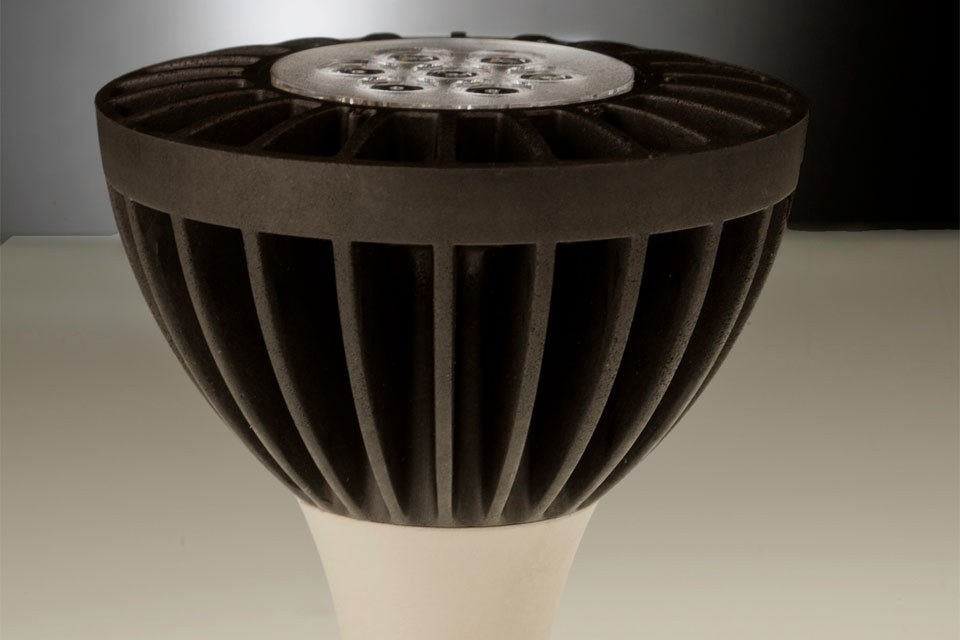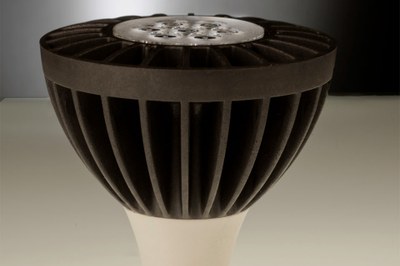Bayer MaterialScience Expands Polycarbonate Range for LED Lighting Systems
Bayer MaterialScience is seeing a growing worldwide demand for polycarbonate for the production of LED lighting systems (light-emitting diodes). The company is therefore systematically expanding its product range for this market segment.
“We are developing tailored materials that correspond to the specific requirements of various LED applications. We do this in close collaboration with all partners in the development chain for this sustainable lighting source of the future,” said Dr. Klaus Reinartz, head of the global LED program at Bayer MaterialScience. “Our focus is on both a wide variety of injection molding and extrusion granules, such as for optical lenses, and semi-finished film and sheet products for the production of such things as light diffusers and reflectors.”
The latest examples for the company's development expertise are polycarbonates with particularly high thermal conductivity for cooling elements used for the thermal management of LEDs and a film that joins the points of light from individual LEDs to form a homogenous band of light.
Advantage, polycarbonate
Compared with glass and metal, polycarbonate offers greater design freedom in the design of LED components, which are frequently very small and geometrically complex. Furthermore, it is significantly lighter. For these reasons, it is used for the injection molding of such things as LED lenses for the low-beams and tail lights as well as light guides for the daytime running lights in automotive headlamps. Compared with other transparent plastics such as PMMA (polymethyl methacrylate), polycarbonate is more impact-resistant and thus more resistant to breakage in addition to being much more resistant to heat. It can be used at temperatures up to 120 °C. Its high refractive index allows optical components to be very thin, which is particularly beneficial for the injection molding of LED lenses.
The new polycarbonates for LED cooling elements, such as Makrolon® TC 8030, are an alternative to aluminum. “These allow the cooling ribs to be more delicate and lighter. Unlike their aluminum counterparts, the injection-molded cooling elements require no post-treatment, enabling cost-effective production with low energy consumption,” said Reinartz.
Films and sheets for diffusing and reflecting light
Sheets and films of polycarbonate also have tremendous potential for applications in LED lighting. Solid reflector and diffuser sheets are particularly useful when the lamp or luminaire system must be very flat, yet at the same time robust and lightweight. One example of an innovative product is Makrolon® DX cool. The diffuser sheets give LED light a cool, bright and fresh appearance. Their clear, ice-blue color gives them an aesthetic appearance even when the light source is switched off, making them well suited for not just decorative LED lamps and lights used indoors, but also for backlit advertising and information signs.
Thin, shapeable reflector and diffuser films of polycarbonate make possible LED luminaires and lamps with a very space-saving construction. The films can be printed with decorative elements, opening up an additional degree of freedom in luminaire and lamp design.
Bayer MaterialScience is also working on solutions for another energy-efficient lighting technology, based on so-called OLEDs (organic light-emitting diode). The company is collaborating with partners in the lighting industry to develop light extraction films for OLED luminaires.
LED – the lighting technology of the future
LED lighting technology can look forward to strong growth thanks to its low power consumption, low maintenance requirement and long service life. It is already displacing traditional lighting systems in numerous applications. Current uses include street lighting, business, restaurant and residential luminaires, advertising, trade show stand construction and ambient lighting in automotive interiors.
Find more information at www.materialscience.bayer.com
About Bayer MaterialScience:
With 2011 sales of EUR 10.8 billion, Bayer MaterialScience is among the world’s largest polymer companies. Business activities are focused on the manufacture of high-tech polymer materials and the development of innovative solutions for products used in many areas of daily life. The main segments served are the automotive, electrical and electronics, construction and the sports and leisure industries. At the end of 2011, Bayer MaterialScience had 30 production sites and employed approximately 14,800 people around the globe. Bayer MaterialScience is a Bayer Group company.


